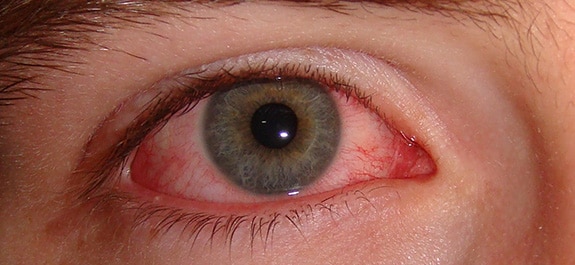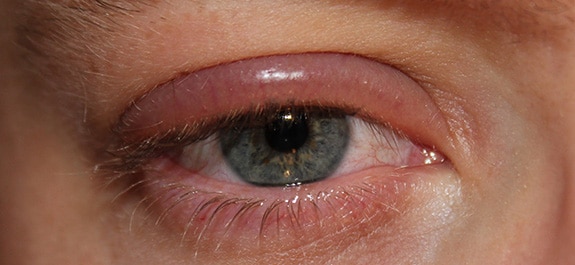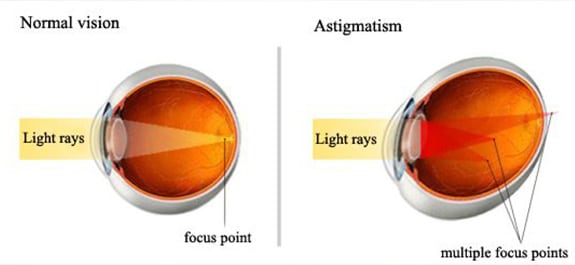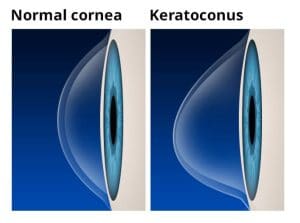Conjunctivitis (Pink Eye): Also called conjunctivitis, pink eye refers to redness and swelling of the conjunctiva, the tissue that covers the white part of the eye. It can be caused by viral infection, bacterial infection or allergies. The treatment depends on the cause and it is mostly by prescription eye drops. Most forms of pink eye, especially the viral infections are highly contagious.
Blepharitis: Blepharitis refers to the chronic infection and inflammation of the eyelashes along the lid margins. Eyelashes with blepharitis tend to be crusty. If untreated blepharitis can cause itching and burning of the eye and also lead to styes. Lid hygiene and prescription medications are effective in controlling Blepharitis.
Amblyopia (Lazy Eye): Lazy eye is an eye that is healthy but not functionally developed so it is usually dependent on the other eye. The cause could be uncorrected vision in childhood or crossed eyes. If lazy eye is detected early in life and promptly treated, reduced vision can be avoided. Treatment consists of full correction of the vision in the affected eye accompanied by vision therapy.
Astigmatism: Regular astigmatism is the most common form of astigmatism that is due to the cornea (front part of the eye) being shaped like a football and not round like a basketball. Regular astigmatism can be corrected with eyeglasses, contact lenses or even LASIK. Irregular Astigmatism, however, is less common and is due to irregular surface of the cornea. Irregular Astigmatism could be best corrected with specialty rigid lenses. Some forms of irregular astigmatism are due to Keratoconus. We diagnose most forms of Irregular Astigmatism and Keratoconus using Corneal Topography , and provide treatments with Specialty Contacts for Keratoconus.
Keratoconus: Keratoconus is a progressive eye condition in which the cornea which is normally round, thins and begins to bulge mostly into a cone-like shape. This irregular-shaped cornea, then distorts light entering the eye and presents significant blurriness and glare. Keratoconus can not be adequately corrected by eyeglasses but mild to moderate cases respond to Specialty Contact Lenses for Keratoconus.
For Progressive Keratoconus a procedure called Collagen Cross-Linking Is FDA Approved for halting progression and in some cases reversal of malformation caused by keratoconus. Also in very advanced cases where loss of sight may be imminent, surgical options such as Corneal Transplant may be recommended.







